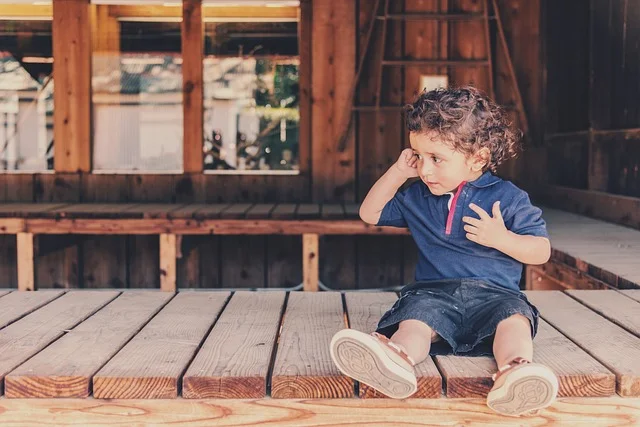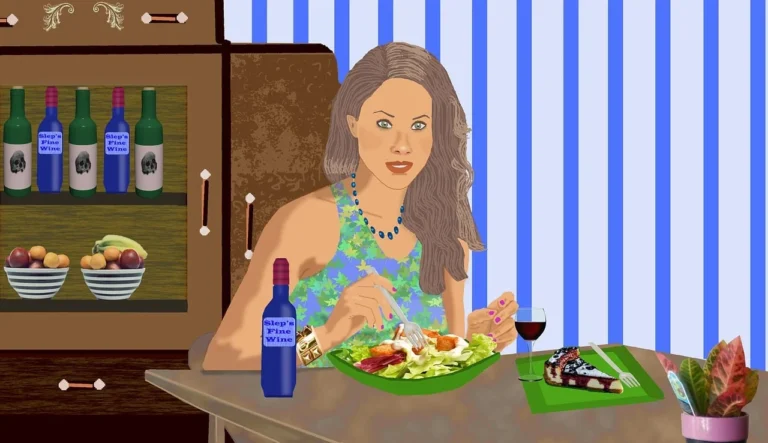Unknown Dead Body Dream Meaning: Understand Meanings & Interpretation
Introduction
Have you ever woken up in a cold sweat, heart pounding, after dreaming about an unknown dead body in your dream? The unsettling imagery lingers, raising anxiety about why you would envision something so disturbing, especially when it involves someone you don’t even know. The feeling is overwhelming—why is this happening? What does it mean to see an unknown dead body in a dream? Could this be a warning, a sign, or simply a reflection of hidden fears? The fact that you’re repeatedly having such dreams can indeed be troubling, leaving you to wonder about their purpose.
For more detailed insights, you might want to explore this article on dreams involving dead persons and their meanings: Dream of dead person not talking to your. This could provide you with further context and possible interpretations. you might want to explore this article on dreams about a dead father who doesn’t talk to you and their possible meanings:
This article aims to provide some clarity and assistance in deciphering the possible meanings behind this disturbing dream scenario. Keep reading to understand the various interpretations and to find some peace of mind regarding these unsettling nocturnal visions.
The Symbolism of Death in Dreams
Dreams about death often carry a deep and complex symbolism, reflecting significant changes, fears, and unresolved emotions in our lives. While the idea of death in dreams may seem unsettling, it rarely signifies an actual physical death. Instead, death in dreams is often a metaphor for endings, transitions, and the need to let go of something in order to move forward. These dreams can be deeply personal and may reflect the inner processes of transformation, growth, and emotional release.
Common Interpretations of Unknown Dead Body Dream Meaning
Something Happens in Life
Dreams of death often occur during times of significant life changes, such as the end of a relationship, the loss of a job, or moving to a new place. These dreams can symbolize the end of one phase of life and the beginning of another, marking a transition from the old to the new.
Previous Losses
Dreaming of death may also reflect unresolved grief or emotions related to previous losses. The death in the dream could represent the need to process these past experiences and come to terms with them, allowing for emotional healing.
Anxiety
Death in dreams can also be a manifestation of anxiety, particularly about the unknown or uncontrollable aspects of life. These dreams might be reflecting fears about your own mortality, the well-being of loved ones, or other aspects of life that feel uncertain or threatening.
Indicators of Real-Life Dangers or Threats
In some cases, dreaming of death can serve as a subconscious alert to real-life dangers or threats. Your mind might be processing subtle cues from your environment, signaling you to be cautious or to address a situation that may pose a risk.
Symbol of Transformation
Death is often seen as a symbol of transformation in dreams. It represents the end of one chapter and the beginning of another, signaling personal growth, renewal, and the shedding of old habits, beliefs, or circumstances that no longer serve you.
Releasing Emotional Baggage
Dreams of death can also signify the release of emotional baggage. The death in the dream may represent the need to let go of past hurts, regrets, or unresolved emotions, freeing yourself to move forward with a lighter heart.
Facing Own Death
Dreaming of your own death can be a powerful experience, often symbolizing self-reflection and a confrontation with your fears and mortality. This type of dream may be urging you to live more fully, address unresolved issues, or embrace the changes that are occurring in your life.
Unsolved Shame
Death in dreams may also be connected to feelings of guilt or unresolved shame. These dreams might be your mind’s way of bringing these buried emotions to the surface, prompting you to confront and resolve them in order to find peace.
Spiritual Meaning of Death in Dreams
In the spiritual context, dreams about death are often seen as profound symbols of transformation, renewal, and spiritual awakening. Rather than indicating a literal death, these dreams typically represent the end of old ways, beliefs, or habits, making way for new beginnings and spiritual growth.
Spiritual Transformation and Rebirth
Death in dreams often symbolizes a spiritual transformation or rebirth. It suggests that an old part of your life or self is dying, allowing a new, more enlightened version of yourself to emerge. This can indicate a significant spiritual shift or awakening.
Letting Go of the Old
Spiritually, death dreams can signify the need to let go of outdated beliefs, habits, or emotional attachments. This release is necessary for your spiritual journey, allowing you to move forward unburdened by the past.
Facing the Shadow Self
Death in dreams may represent a confrontation with the shadow self—the parts of your psyche that you may have ignored or repressed. Spiritually, this can be a call to integrate these aspects, leading to greater self-awareness and wholeness.
Endings as New Beginnings
From a spiritual perspective, death in dreams can symbolize that endings are not final but are gateways to new beginnings. This interpretation encourages you to embrace change, understanding that the end of one phase leads to the start of something new and spiritually significant.
Cleansing and Purification
Spiritually, death in dreams can also represent a process of cleansing and purification. It might signify that you are shedding old energies or karmic debts, preparing you for a purer, more aligned spiritual path.
Facing Mortality and Embracing Life
Death dreams can also serve as a reminder of the impermanence of life, urging you to live fully and authentically. Spiritually, this can be a wake-up call to embrace your life’s purpose and to live with greater awareness and intention.
Biblical Interpretation of Death in Dreams
In the biblical context, dreams about death are often seen as symbolic rather than literal, reflecting themes of spiritual transformation, divine intervention, and the need for renewal. These dreams can represent both the end of something in your life and the beginning of something new, guided by spiritual wisdom and God’s plan.
Spiritual Renewal and Rebirth
In the Bible, death often symbolizes a form of spiritual renewal or rebirth. Dreaming of death may indicate that God is guiding you through a process of shedding old, sinful ways and being reborn in spiritual righteousness, much like the concept of being born again in Christ.
Endings as Part of God’s Plan
Death in a biblical dream can signify the end of a particular season or chapter in your life. This ending is not to be feared but embraced as part of God’s greater plan, opening the door to new opportunities and spiritual growth.
Divine Intervention and Protection
Sometimes, death in a dream can be a warning or a sign of divine intervention. It may indicate that God is protecting you from something harmful or leading you away from a path that is not aligned with His will.
Judgment and Repentance
In the Bible, death is often associated with judgment and the need for repentance. Dreaming of death could be a call to examine your life, repent for sins, and seek forgiveness, aligning yourself with God’s will and preparing for spiritual renewal.
Victory over Death through Christ
Death in a biblical dream can also remind you of the victory over death that is promised through Jesus Christ. It may symbolize overcoming spiritual death and embracing eternal life, reinforcing your faith in God’s promise of salvation.
Common Scenarios of Death in Dreams
Dreams about death can manifest in various scenarios, each carrying its own unique symbolism and message. Below are some common scenarios and their possible interpretations:
Dreaming of Your Own Death
This scenario often represents a significant transformation or change in your life. It may indicate that you are shedding an old identity, belief, or way of living to embrace a new phase of growth and self-discovery. Spiritually, it can signify a rebirth or renewal, where you are moving closer to your true purpose or higher self.
Dreaming of a Loved One’s Death
Dreaming about the death of someone close to you can be particularly distressing. However, this dream often symbolizes the end of a particular relationship dynamic or the need to let go of certain emotions or attachments related to that person. Biblically, it might also be a call to pray for that person or to strengthen your relationship with them.
Dreaming of an Unknown Person’s Death
When you dream about the death of someone you do not know, it often represents aspects of yourself that are unfamiliar or unrecognized. This could symbolize the end of certain habits or characteristics that no longer serve you. Spiritually, it may suggest the need to explore and integrate these unknown aspects of your personality.
Dreaming of Multiple Deaths
A dream involving multiple deaths can be overwhelming and may symbolize a period of intense change or upheaval in your life. This scenario might indicate that several aspects of your life are undergoing transformation simultaneously, and you are being called to adapt and embrace these changes.
Dreaming of a Peaceful Death
If the death in your dream is peaceful, it often signifies acceptance and readiness for a new chapter in life. This scenario can represent spiritual maturity and the understanding that endings are natural and necessary for growth. Biblically, it may symbolize a transition guided by faith and trust in God’s plan.
Dreaming of a Violent or Tragic Death
A violent or tragic death in a dream may reflect inner turmoil, unresolved conflicts, or deep-seated fears. This scenario could be urging you to confront these issues head-on and seek resolution. Spiritually, it might represent the struggle between your old and new selves, indicating a need for spiritual cleansing and renewal.
Dreaming of Death and Resurrection
In some dreams, death is followed by a resurrection or rebirth. This powerful scenario symbolizes profound transformation and the promise of new life. Biblically, it can be a reminder of Christ’s resurrection and the hope of eternal life, encouraging you to hold on to your faith during challenging times.

Psychological Interpretation of Death in Dreams
In psychological terms, dreams about death often symbolize significant inner processes and changes. They can reflect how we deal with major transitions, fears, and unresolved emotions. Psychologically, death in dreams can be seen as a metaphor for the end of certain mental or emotional states and the beginning of new ones.
Jungian Perspective
Carl Jung viewed dreams about death as symbols of transformation and individuation. For Jung, death in dreams often represents the end of a particular phase in one’s personal development, making way for new growth and self-awareness. This process of symbolic death and rebirth is crucial for integrating different aspects of the self and achieving psychological wholeness. Jung believed that such dreams reflect the unconscious mind’s attempt to resolve internal conflicts and facilitate personal evolution.
Freudian Perspective
Sigmund Freud, on the other hand, interpreted death in dreams through the lens of repressed desires and unresolved conflicts. Freud saw dreams about death as manifestations of underlying anxieties or suppressed feelings. In his view, these dreams often reveal fears about mortality, loss, or changes in one’s life. Freud believed that such dreams could be a way for the subconscious to confront and process these deep-seated fears and desires, ultimately allowing for emotional release and coping.
Cultural Interpretations of Death in Dreams
Cultural interpretations of death in dreams vary widely, reflecting different beliefs and values. In Native American cultures, such dreams often symbolize spiritual transformation and the need for reconnecting with one’s spiritual path. Chinese culture may see them as warnings or signs of new beginnings, depending on the dream’s context. Hinduism views death in dreams as a transition marking spiritual growth or the end of a karmic cycle.
Japanese culture may interpret such dreams as omens or messages from the spirit world, while many African cultures regard them as significant communications from ancestors, offering guidance or warnings about personal or communal issues. Each culture brings its own perspective, shaping the understanding of death in dreams as a profound symbol of change, guidance, and spiritual insight.
Coping Strategies for Dealing with Dreams about Death
Dreams about death can be unsettling, but several strategies can help you manage the emotions and insights they bring:
Reflect on the Dream’s Meaning
Take time to analyze the dream and its context. Reflect on any recent life changes, fears, or unresolved issues that might be connected to the dream. Understanding the underlying emotions can help you address any real-life concerns.
Practice Self-Care
Engage in activities that promote relaxation and well-being, such as meditation, journaling, or talking with a trusted friend or therapist. Self-care can help alleviate any anxiety or distress caused by the dream.
Seek Professional Support
If the dream about death causes significant distress or recurring anxiety, consider speaking with a mental health professional. Therapy can provide insights into the dream’s meaning and offer coping strategies to address underlying fears or issues.
Embrace Change and Transformation
Recognize that dreams about death often symbolize transformation and growth. Embrace the opportunity to reflect on personal changes or new beginnings in your life, using the dream as a catalyst for positive action.
Focus on Positive Outcomes
Reframe the dream as a symbol of potential positive change rather than a threat. By focusing on how the dream might indicate growth or new opportunities, you can transform anxiety into motivation and hope.
Frequently Asked Questions (FAQs) about Dreams of Death
Can dreams about death predict real-life events?
A. While dreams about death can be unsettling, they are generally not predictive of actual events. Instead, they often reflect your subconscious mind’s processing of emotions, fears, and life changes. They are more likely to symbolize personal or emotional transitions rather than literal events.
How can I distinguish between a symbolic and a literal death in a dream?
A. Symbolic deaths in dreams usually involve significant changes or transitions, such as the end of a phase or the beginning of a new chapter. Literal interpretations, on the other hand, might involve more explicit and direct scenarios. Analyzing the context and your emotions during the dream can help you determine its symbolic meaning.
Are there specific actions I should take if I dream about someone’s death?
If you dream about someone’s death, consider reflecting on your relationship with that person and any unresolved feelings or issues. It may be helpful to reach out to them, address any lingering concerns, or simply process your emotions related to the dream.
Can keeping a dream journal help with understanding dreams about death?
Absolutely. Keeping a dream journal can help you track recurring themes, symbols, and emotions in your dreams. By documenting your dreams about death and reflecting on their contexts, you can gain deeper insights into their meanings and how they relate to your waking life.
How can I address fear or anxiety related to dreams about death?
To address fear or anxiety, practice grounding techniques such as deep breathing, mindfulness, or talking to a mental health professional. Understanding that these dreams are often symbolic can also help alleviate fear, focusing on the positive changes and growth they may represent.
Conclusion
Dreams about death, while often unsettling, are rich in symbolic meaning and offer valuable insights into our inner lives. They typically represent significant changes, transformations, or unresolved emotions rather than literal events. By exploring the context of the dream, reflecting on personal fears and transitions, and considering cultural and psychological perspectives, you can gain a deeper understanding of what these dreams might signify.
Utilizing coping strategies such as self-reflection, self-care, and seeking professional support can help you manage any anxiety or distress. Ultimately, embracing these dreams as opportunities for personal growth and transformation can turn them into powerful catalysts for positive change in your life.







